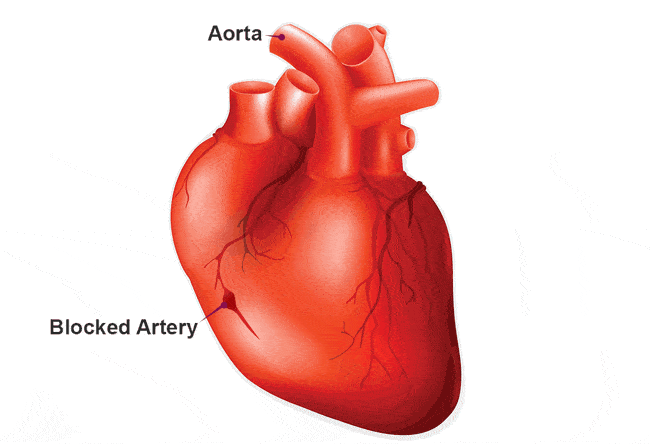A heart bypass surgery, or a coronary artery bypass surgery (CABG), is a surgical procedure that reroutes blood flow around a blocked or narrowed artery in your heart. This restores blood flow to your heart by creating a new pathway for your blood to flow.

Refresh the browser to replay the animation
Your cardiologist may recommend a heart bypass surgery if angioplasty is not a suitable option to treat your blocked or narrowed artery due to the nature and severity of the stenosis.
Depending on the number of blocked arteries, there are several types of heart bypass surgeries available:
- Single bypass surgery: done when one artery is blocked.
- Double bypass surgery: done when two arteries are blocked.
- Triple bypass surgery: done when three arteries are blocked.
- Quadruple bypass surgery: done when four arteries are blocked.
Make an appointment to consult a heart specialist / cardiologist to find out more about the treatment options that are suitable for you.
What happens during a Heart Bypass Surgery?

During the heart bypass surgery, your heart surgeon will make an incision down the centre of the chest to reach the heart. The ribs are then opened to reveal the heart, which is then temporarily stopped. A heart-lung machine takes over the heart’s function to circulate blood to the rest of the body while your heart surgeon operates on your heart.
Your heart surgeon will remove a healthy blood vessel from your chest, arm or leg to replace the blocked or narrowed artery’s function. One end is attached above the blockage, while the other is attached below the blockage to allow blood to bypass the damaged artery.
After the artery is grafted to your heart, your heart surgeon will remove the heart-lung machine and check the function of your bypass. If the bypass is working successfully, your surgeon will stitch and bandage the incision.
As a heart bypass surgery is an invasive procedure, you will be warded in the hospital’s Intensive Care Unit for monitoring. You will also be cared for by an intensivist.
Caring for your heart after a Heart Bypass Surgery
Even though heart bypass surgery will help to improve blood flow to your heart, it will not cure you of heart disease. You will still be at risk of future heart disease and blocked arteries. Aside from regularly taking the heart medications prescribed by your cardiologist, a healthy lifestyle will keep your heart disease under control.
Make An Appointment
Make an appointment to consult a heart specialist / cardiologist at Raffles Heart Centre. Select "Specialist Appointment". Under Specialist Appointment Details, select "Cardiology" or "Cardiothoracic Surgery".
Make an enquiry. We will get back to you within 2 working days. You can reach us at 6311 2260.